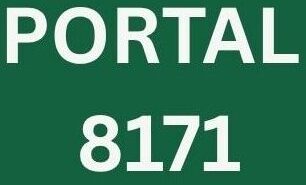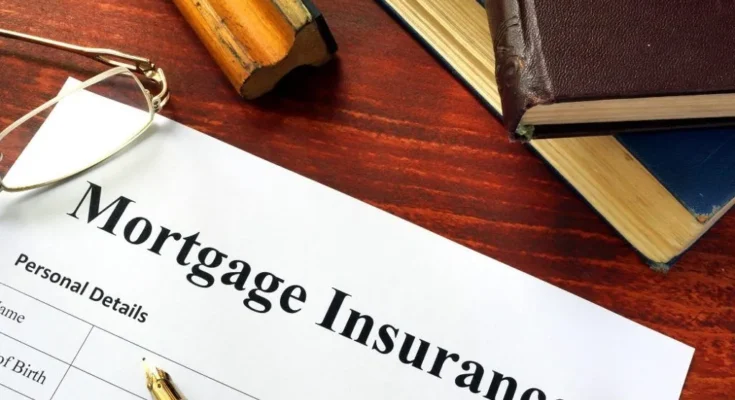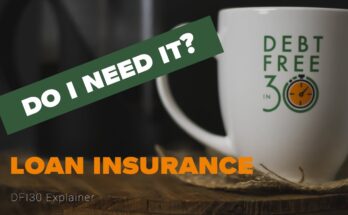Best Loan Options, Having bad credit can feel like a financial roadblock, but it doesn’t mean you’re out of options. Whether you’re facing unexpected medical bills, car repairs, or just need to consolidate debt, there are loans designed for people with less-than-perfect credit. This comprehensive guide explores the best loan options for bad credit, offering practical advice to help you make informed decisions. Read on to discover how to secure financing, improve your credit, and avoid predatory lenders.
Understanding Bad Credit and Its Impact
Bad credit typically refers to a credit score below 580 on the FICO scale, though some lenders consider scores below 650 as subprime. A low score can result from missed payments, high debt, bankruptcies, or limited credit history. It signals to lenders that you’re a higher-risk borrower, often leading to higher interest rates or outright loan denials.
However, bad credit doesn’t disqualify you from borrowing. Specialized lenders and loan products cater to individuals with poor credit, offering pathways to financial relief. Let’s dive into the best loan options available.
1. Secured Personal Loans
What Are Secured Personal Loans?
Secured personal loans require collateral, such as a car, savings account, or home equity, to back the loan. Because collateral reduces the lender’s risk, these loans are more accessible for people with bad credit and often come with lower interest rates than unsecured loans.
Pros
- Easier approval for bad credit borrowers.
- Lower interest rates (typically 6%-15%).
- Larger loan amounts, depending on collateral value.
Cons
- Risk of losing collateral if you default.
- Longer approval process due to asset valuation.
Best For
Individuals who own valuable assets and are confident in their ability to repay.
Where to Find Secured Loans
- Credit Unions: Many offer secured loans with competitive rates. For example, Navy Federal Credit Union provides secured loans starting at 7% APR.
- Banks: Wells Fargo and TD Bank offer secured loans, though requirements vary.
- Online Lenders: Platforms like Upgrade allow you to use a vehicle or savings as collateral.
Tip: Compare APRs and terms across multiple lenders to find the best deal. Always read the fine print to understand repossession risks.
2. Unsecured Personal Loans for Bad Credit
What Are Unsecured Personal Loans?
Unsecured personal loans don’t require collateral, making them riskier for lenders and harder to qualify for with bad credit. However, some lenders specialize in bad credit borrowers, offering loans based on income and repayment ability.
Pros
- No risk of losing assets.
- Faster approval and funding (often within 24-48 hours).
- Flexible use for debt consolidation, emergencies, or other needs.
Cons
- Higher interest rates (15%-36% APR).
- Lower loan amounts (typically $1,000-$10,000).
- Stricter income requirements.
Best For
Borrowers who lack collateral but have steady income.
Top Lenders for Bad Credit Unsecured Loans
- Avant: Offers loans from $2,000-$35,000 with APRs starting at 9.95%. Ideal for borrowers with scores as low as 550.
- LendingPoint: Provides loans up to $36,500 with flexible repayment terms. Minimum credit score is 580.
- OneMain Financial: Known for personalized service, offering loans from $1,500-$20,000 with APRs from 18%-35.99%.
Tip: Pre-qualify with multiple lenders to check rates without impacting your credit score. Avoid lenders with excessive fees or unclear terms.
3. Payday Alternative Loans (PALs)
What Are Payday Alternative Loans?
Offered by credit unions, PALs are small, short-term loans designed as safer alternatives to payday loans. They’re regulated by the National Credit Union Administration (NCUA) and available to credit union members with bad credit.
Pros
- Low fees (capped at $20 application fee).
- Affordable interest rates (up to 28% APR).
- Loan amounts from $200-$2,000 with 1-12 month terms.
Cons
- Requires credit union membership.
- Limited loan amounts.
- Not available at all credit unions.
Best For
Borrowers needing small, emergency funds.
How to Access PALs
Join a credit union like Alliant or PenFed, which offer PALs. Membership often requires a small deposit or meeting eligibility criteria (e.g., living in a specific area).
Tip: PALs can help build credit if payments are reported to credit bureaus. Confirm this with your credit union.
4. Bad Credit Installment Loans
What Are Installment Loans?
Installment loans allow you to borrow a lump sum and repay it in fixed monthly payments over a set term (typically 6-60 months). Many online lenders offer installment loans tailored for bad credit borrowers.
Pros
- Predictable monthly payments.
- Flexible terms and amounts ($500-$50,000).
- Quick funding (often same-day).
Cons
- High interest rates (20%-100% APR in some cases).
- Potential for predatory lenders with hidden fees.
Best For
Borrowers seeking structured repayments for larger expenses.
Reputable Installment Loan Lenders
- NetCredit: Offers loans up to $10,000 with APRs from 34%-99%, depending on state regulations.
- OppLoans: Provides loans from $500-$4,000 with APRs up to 160% but no hidden fees.
- Personify Financial: Loans up to $15,000 with transparent terms, ideal for scores below 600.
Tip: Avoid lenders promising “guaranteed approval” or charging upfront fees, as these are red flags for scams.
5. Co-Signer or Joint Loans
What Are Co-Signer Loans?
A co-signer with good credit agrees to repay the loan if you default, reducing the lender’s risk. Joint loans involve a co-borrower who shares equal responsibility for repayment.
Pros
- Higher approval odds and better rates.
- Opportunity to build credit with on-time payments.
- Access to larger loan amounts.
Cons
- Puts co-signer’s credit at risk.
- Strained relationships if payments are missed.
Best For
Borrowers with a trusted co-signer or partner with strong credit.
Where to Find Co-Signer Loans
- SoFi: Offers joint loans with competitive rates for debt consolidation.
- FreedomPlus: Allows co-signers to improve approval odds.
- Local Banks: Many community banks offer co-signer options.
Tip: Ensure both parties understand the loan terms and repayment obligations to avoid conflicts.
6. Peer-to-Peer (P2P) Loans
What Are P2P Loans?
P2P lending platforms connect borrowers with individual investors willing to fund loans. Platforms like Prosper and LendingClub offer P2P loans for bad credit borrowers, though rates depend on your credit profile.
Pros
- Competitive rates for fair credit (10%-30% APR).
- Flexible loan amounts ($1,000-$40,000).
- No collateral required.
Cons
- Higher rates for very low scores.
- Origination fees (1%-8%).
- Slower funding (up to a week).
Best For
Borrowers with fair credit (580-650) seeking alternatives to traditional lenders.
Tip: Check platform reviews and investor requirements to increase approval chances.
Tips for Borrowing with Bad Credit
- Check Your Credit Report: Review your report for errors using free services like AnnualCreditReport.com. Dispute inaccuracies to boost your score.
- Compare Lenders: Shop around for the lowest APR and fees. Use pre-qualification tools to avoid hard credit inquiries.
- Avoid Predatory Lenders: Steer clear of payday loans, title loans, or lenders with APRs above 36%, as they can trap you in debt.
- Improve Your Credit: Pay bills on time, reduce debt, and consider secured credit cards to rebuild your score over time.
- Read Loan Terms: Understand repayment schedules, fees, and penalties before signing.
Alternatives to Bad Credit Loans
If loans aren’t the right fit, consider these alternatives:
- Borrow from Family or Friends: Create a written agreement to avoid misunderstandings.
- Nonprofit Assistance: Organizations like Modest Needs offer grants for emergency expenses.
- Side Hustles: Earn extra income through freelancing or gig work to cover costs.
- Debt Management Plans: Work with a credit counselor to negotiate lower rates with creditors.
How to Avoid Loan Scams
Bad credit borrowers are prime targets for scams. Watch for these warning signs:
- Upfront Fees: Legitimate lenders don’t charge fees before disbursing funds.
- Guaranteed Approval: No lender can guarantee approval without reviewing your finances.
- Unsolicited Offers: Be wary of unsolicited calls or emails offering loans.
- Unclear Terms: Reputable lenders provide transparent loan agreements.
Report suspicious lenders to the Consumer Financial Protection Bureau (CFPB) or your state’s attorney general.
Building Credit After Borrowing
Taking out a loan can be a stepping stone to better credit. Here’s how:
- Make payments on time (35% of your FICO score).
- Keep credit card balances low (30% of your score).
- Avoid opening multiple accounts in a short period.
- Monitor your score using free tools like Credit Karma or Experian.
Final Thoughts
Bad credit may limit your options, but it doesn’t eliminate them. Secured loans, unsecured personal loans, PALs, installment loans, co-signer loans, and P2P loans offer viable solutions for borrowing with poor credit. By comparing lenders, avoiding scams, and managing repayments responsibly, you can address immediate financial needs while working toward a stronger credit future. future Start by exploring reputable lenders like Avant, OneMain Financial, or your local credit union to find the best loan for your needs.




